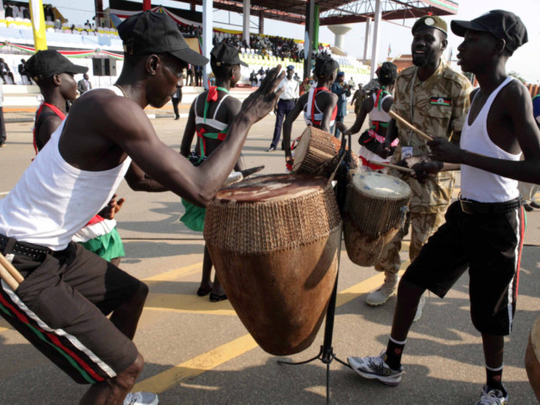
The unceasing flow of bad news from the Middle East, plus the geopolitical power games in Ukraine, have seized international attention this year. In both cases, the stakes are high and the options risky. Yet, these political emergencies are still matched by humanitarian emergencies elsewhere — crises that may seem easy to forget, but that need just as much diplomatic focus and energy.
South Sudan faced an enormous array of challenges when it gained independence three years ago. Five decades of on-again-off-again conflict had left it among the poorest places on Earth. It had minimal infrastructure, new political institutions and an economy that was almost wholly dependent on oil exports and aid. Yet, there existed in the world’s newest country a real sense of possibility and among its supporters inside and out a hope that a more peaceful future may await its 12 million people.
That was three years ago. When I visited South Sudan recently, there was outright crisis. And there is worse coming.
Travelling by canoe to remote Ganyliel, I saw women taking water lilies from tributaries of the Nile — for eating. Costly airdrops are now the only way to get food into the town, as roads turn to mud and disappear amidst seasonal rains. Amongst children, levels of need are shockingly high: Currently, up to 50,000 may die without urgent treatment while, by the end of the year, it is expected that nearly one million South Sudanese children under five will face severe and acute malnutrition. With so many farmers unable to plant crops, the United Nations estimates that by the end of next month, more than seven million people in South Sudan will be short of food.
Meanwhile, tens of thousands of terrified people have poured into makeshift camps in towns that were already struggling to feed themselves. In the river town of Mingkaman, I saw some of the 100,000 people who had gathered in the middle of nowhere — because it was the only place they felt safe. Across the north of the country there is a process of ethnic sorting, as South Sudan’s tribes and clans divide rather than unite.
Two of those killed in recent violence were from my organisation, the International Rescue Committee (IRC), caught in a slaughter of 60 inside a UN compound in Bor when it was stormed because it was sheltering one ethnic group. It is little wonder that nearly everyone who remains still fears returning home.
In December, a festering political dispute within the ruling party, the Sudan People’s Liberation Movement, triggered gunfire between rival army units in the capital city of Juba. Since then, more than one million people have fled their homes to escape fighting. Informed estimates are that more than 10,000 are dead. Half the population of South Sudan now requires humanitarian assistance.
Given the nearly 400,000 refugees who have left the country, the increasing alarm of the country’s neighbours is not surprising — and it has spurred repeated attempts to negotiate a ceasefire. But with talks now stalled “indefinitely”, it is imperative to follow up with international support — including the early delivery of the extra UN peacekeeping troops promised in a Security Council resolution passed earlier this year.
Peace is the priority to prevent further disaster. However, provision now and planning for the dry season ahead remain essential. The humanitarian needs centre on food and medicine to staunch the dying. The IRC has been providing vital humanitarian and developmental assistance in South Sudan since 1989. The scale of what we now face is testing resources in an unprecedented manner.
South Sudan is the size of France and its population is widely spread. A donor conference in Oslo in May saw an extra $600 million (Dh2.2 billion) pledged for those affected by the crisis. Commitments by the US, Britain, the European Commission and Norway accounted for 86 per cent of that. So there is a job to be done in pressing those who have not yet given to help meet the funding shortfall of more than $1 billion.
The money is needed as soon as possible — and we in the humanitarian sector need to build up our delivery systems, whether for life-saving help or to address the syndrome of violence against women and girls, which is such a sad feature of emergency situations.
That South Sudan could have imploded so quickly testifies to deep-seated grievance and trauma. It also points to an uncomfortable truth: Rebuilding trust inside the country and resolving entrenched political and ethnic differences will take many years. That will require energised and enlightened leadership inside the country and consistent pressure from concerned neighbours and friends.
This manmade emergency is tragic more than it is complex. The vast majority of the South Sudanese people get no sniff of the proceeds of the country’s multi-billion dollar oil industry. Their endurance in the face of a 30-year war for independence has been extraordinary. Now they are going to need our attention for more than the latest news cycle.
David Miliband is president and CEO of International Rescue Committee and former UK foreign secretary.







